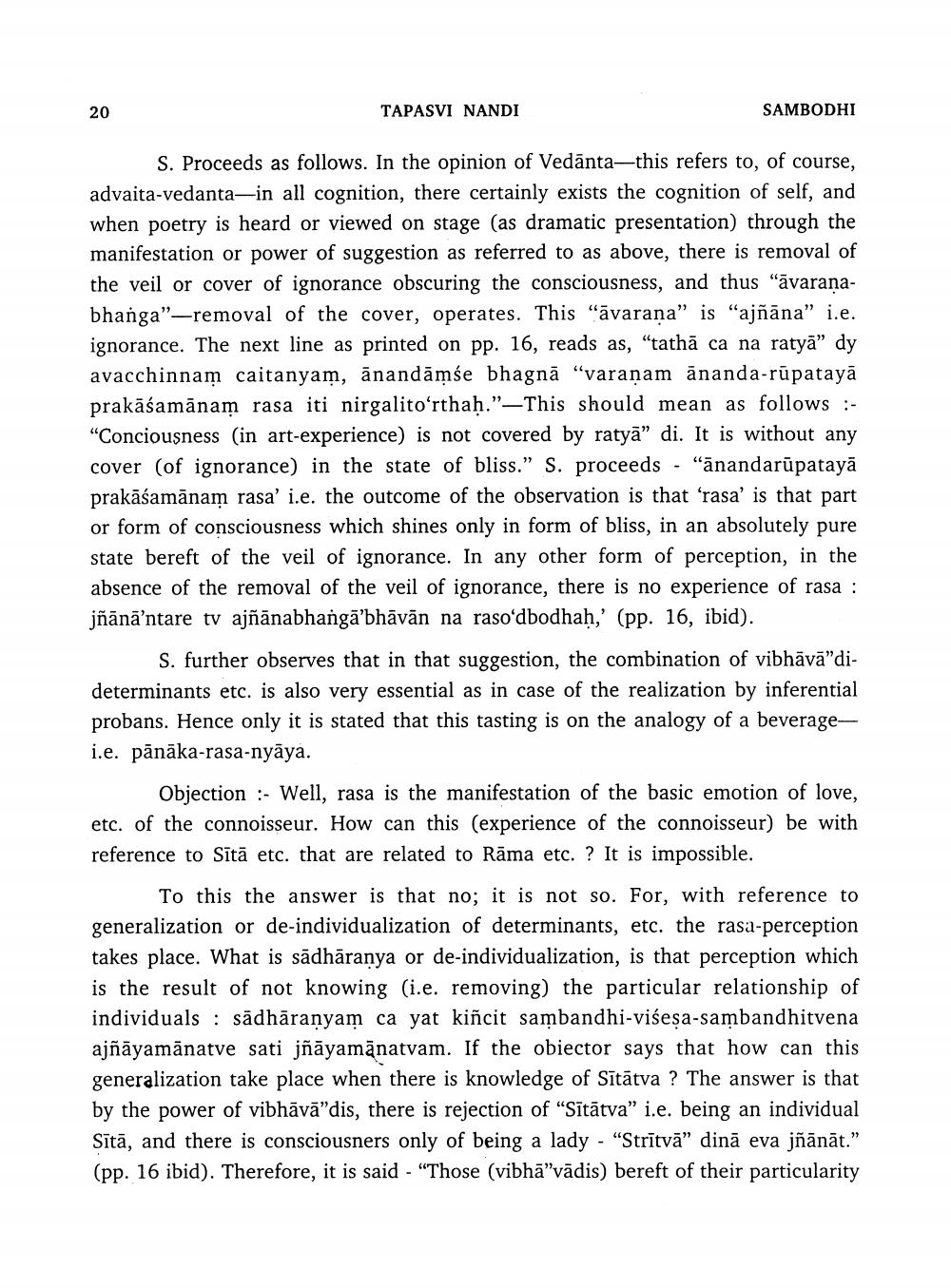________________
20
TAPASVI NANDI
SAMBODHI
S. Proceeds as follows. In the opinion of Vedānta—this refers to, of course, advaita-vedanta-in all cognition, there certainly exists the cognition of self, and when poetry is heard or viewed on stage (as dramatic presentation) through the manifestation or power of suggestion as referred to as above, there is removal of the veil or cover of ignorance obscuring the consciousness, and thus "āvaranabhanga"-removal of the cover, operates. This "āvarana" is "ajñāna" i.e. ignorance. The next line as printed on pp. 16, reads as, "tathā ca na ratyā” dy avacchinnam caitanyam, ānandāmse bhagnā "varanam ānanda-rūpatayā prakāśamānam rasa iti nirgalitoʻrthah.”—This should mean as follows :"Conciousness (in art-experience) is not covered by ratyā” di. It is without any cover (of ignorance) in the state of bliss." S. proceeds - "ānandarūpatayā prakāśamānam rasa' i.e. the outcome of the observation is that 'rasa' is that part or form of consciousness which shines only in form of bliss, in an absolutely pure state bereft of the veil of ignorance. In any other form of perception, in the absence of the removal of the veil of ignorance, there is no experience of rasa : jñānā’ntare tv ajñānabhangā’bhāvān na rasoʻdbodhah,' (pp. 16, ibid).
S. further observes that in that suggestion, the combination of vibhāvā"dideterminants etc. is also very essential as in case of the realization by inferential probans. Hence only it is stated that this tasting is on the analogy of a beveragei.e. pānāka-rasa-nyāya.
Objection :- Well, rasa is the manifestation of the basic emotion of love, etc. of the connoisseur. How can this experience of the connoisseur) be with reference to Sītā etc. that are related to Rāma etc. ? It is impossible.
To this the answer is that no; it is not so. For, with reference to generalization or de-individualization of determinants, etc. the rasa-perception takes place. What is sādhāranya or de-individualization, is that perception which is the result of not knowing (i.e. removing) the particular relationship of individuals : sādhāranyam ca yat kiñcit sambandhi-višeşa-sambandhitvena ajñāyamānatve sati jñāyamānatvam. If the obiector says that how can this generalization take place when there is knowledge of Sītātva ? The answer is that by the power of vibhāvā"dis, there is rejection of “Sītātva" i.e. being an individual Sītā, and there is consciousners only of being a lady - "Strītvā” dinā eva jñānāt.” (pp. 16 ibid). Therefore, it is said - "Those (vibhā"vādis) bereft of their particularity




